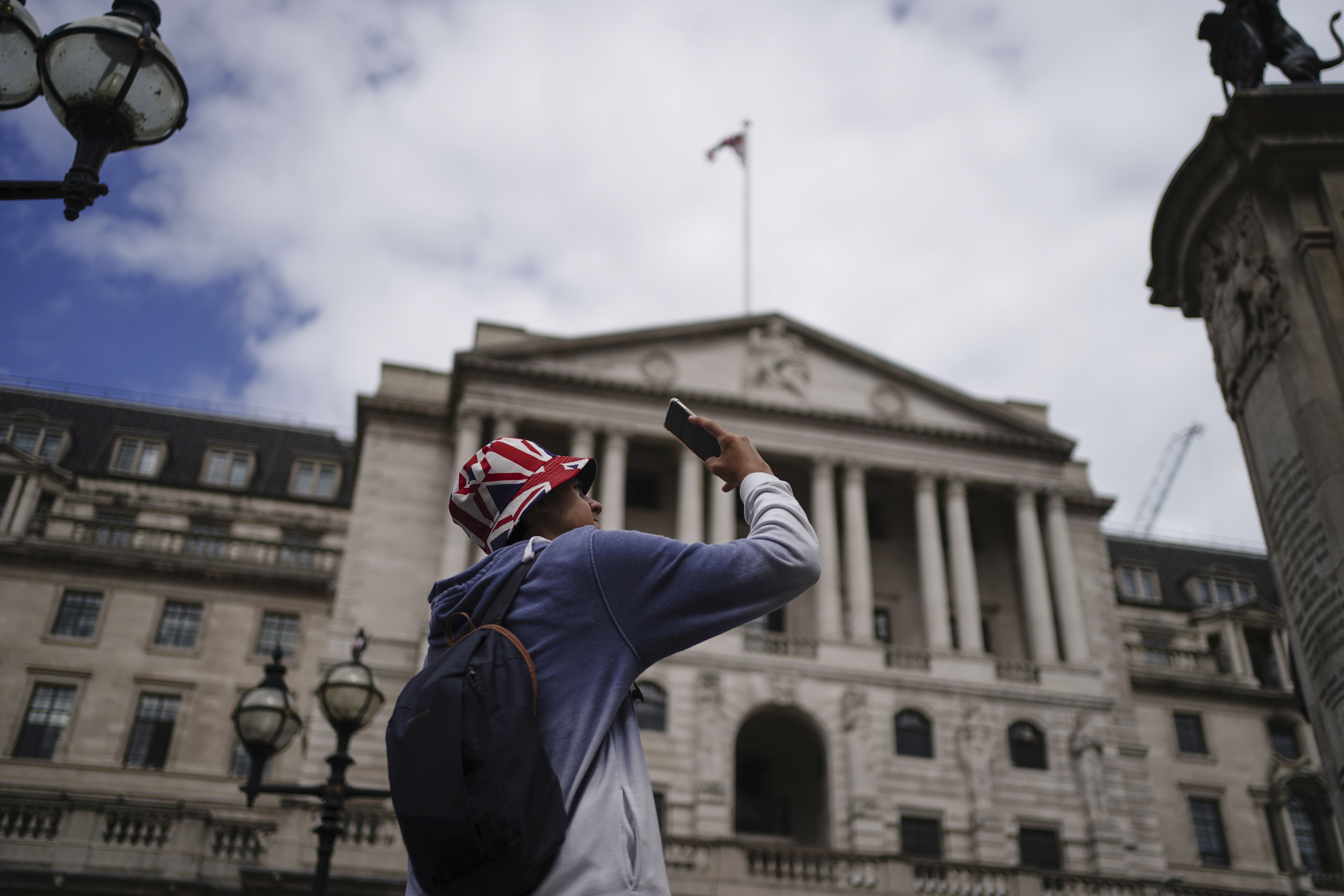Bank of England poised to cut UK interest rates for second time this year
Most economists think policymakers at the Bank of England will opt to reduce interest rates to 4.75% on Thursday.

Your support helps us to tell the story
From reproductive rights to climate change to Big Tech, The Independent is on the ground when the story is developing. Whether it's investigating the financials of Elon Musk's pro-Trump PAC or producing our latest documentary, 'The A Word', which shines a light on the American women fighting for reproductive rights, we know how important it is to parse out the facts from the messaging.
At such a critical moment in US history, we need reporters on the ground. Your donation allows us to keep sending journalists to speak to both sides of the story.
The Independent is trusted by Americans across the entire political spectrum. And unlike many other quality news outlets, we choose not to lock Americans out of our reporting and analysis with paywalls. We believe quality journalism should be available to everyone, paid for by those who can afford it.
Your support makes all the difference.UK borrowing costs are set to be cut for the second time this year, despite tax changes and a Donald Trump victory in the US casting uncertainty over the future path of interest rates.
Most economists think policymakers at the Bank of England will opt to reduce interest rates to 4.75% on Thursday.
Rates currently sit at 5% after being cut by 0.25 percentage points in August, the first reduction since 2020, then kept the same in September.
Since then, the latest official data showed UK Consumer Prices Index (CPI) inflation fell to 1.7% in September, the lowest level since April 2021.
The slowdown, from 2.2% in August, was driven by a sharp slump in petrol prices and lower airfares.
Experts said inflation falling below the Bank’s 2% target level will encourage policymakers to continue easing interest rates, releasing some more pressure on borrowers and mortgage holders across the UK.
Andrew Goodwin, chief UK economist for Oxford Economics, said the outcome of the Bank’s Monetary Policy Committee (MPC) meeting “looks virtually certain”, although some members could still opt for rates to be kept the same.
MPC members Huw Pill and Megan Greene are the most “unpredictable”, he said, with lingering concerns over services sector inflation and wage growth.
The Monetary Policy Committee meets in the week after Chancellor Rachel Reeves announced almost £70 billion of extra annual spending, funded by business-focused tax hikes and additional borrowing.
The Office for Budget Responsibility (OBR) said the sharp increase in spending will contribute to higher inflation, although it will also help drive stronger economic growth.
Inflation is forecast to average 2.5% this year and 2.6% next year before coming down, assuming “the Bank of England responds” to help bring it to the target rate, the OBR said.
The Budget won’t change the Bank’s decision to cut rates again this week... but it does question our long-held view that rate cuts will speed up from now on
It has prompted economists to reel in predictions for a rapid succession of rate cuts over the next year.
James Smith, developed market economist for ING, said: “The Budget won’t change the Bank’s decision to cut rates again this week.
“But it does question our long-held view that rate cuts will speed up from now on.
“The risk is that this happens later, and the Bank decides to keep rates on hold again in December.
“A cut at the final meeting of the year looks fairly 50:50, and a lot will depend on the two inflation reports we get between now and Christmas.”
The latest decision also comes a day after Donald Trump was declared victorious in the US presidential election.
Some economists said Mr Trump’s economic policies, including proposed tax cuts and higher trade tariffs, are inflationary.
This could prompt policymakers to keep interest rates higher for longer, with knock-on implications for monetary policy in the UK.
The US Federal Reserve will also announce the nation’s interest rate on Thursday, with financial markets also betting on a 0.25 percentage point reduction.